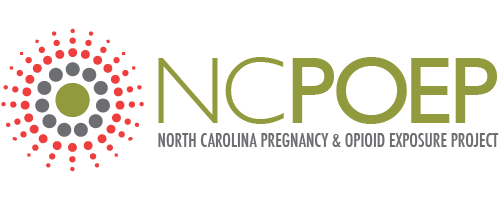Documentation is crucial and the following elements must be covered: referral for treatment; treatment refusal; and planned use of medications not approved by the FDA, including use of methadone versus buprenorphine. Ancillary services provided should also be documented.
Clinical Management: Frequently Asked Questions
The following scenarios may help prenatal care providers and medication providers understand the treatment decisions regarding a woman with opioid-use disorder. As for any other medical illness, frequent and close communication between providers will enable coordinated care and an optimal medical approach.
Do I have to offer office-based buprenorphine to a pregnant patient because she refuses methadone?
- The patient should receive optimal care during pregnancy
- If she is not a candidate for office-based buprenorphine, then she should receive a referral to an OTP that offers buprenorphine, and/or referral to a residential treatment program.
- If an OTP that offers buprenorphine is not logistically possible, consider offering the patient referral to a residential treatment program, with transfer to office-based buprenorphine treatment after she successfully completes the residential program.
Do I have to start buprenorphine immediately because the patient is pregnant?
- Pregnancy is not an emergency — it’s simply a priority.
- Confirm opioid dependence
- Confirm viable pregnancy
May I stop prescribing buprenorphine to a pregnant patient who is non-compliant with treatment?
- The patient’s continued engagement in risky behaviors is unsafe for the woman and her fetus.
- Medication can be discontinued for any medical reason when there is lack of benefit; alternative treatment plans should be offered (e.g., residential treatment programs, or OTP center that offer buprenorphine)
- Continued high-risk behaviors demonstrated by patients receiving office-based treatment suggest the need for residential and OTP care as well as re-evaluation of patient needs.
- Document instances of non-compliance and all offers of alternative treatments and/or more structured programs.
How do I know when to decline further office-based care with buprenorphine?
- When there is evidence of concurrent use of benzodiazepines
- When there is evidence of concurrent use of cocaine
- When the patient has difficulty engaging in counseling
- This decision is often dependent on the local availability of an OTP that offers buprenorphine. If an OTP is available, you can offer to refer the patient to the OTP so she can be stabilized on buprenorphine. Once she is stabilized, allow her to return to office-based care.
- This decision can depend on the ease of switching to methadone. If no treatment is the only option, then the medical provider must carefully assess the overall maternal/fetal risk/benefit of continuing office-based care with buprenorphine; the medication provider has some latitude if the risk/benefit favors office-based care.
What should I do when I decide I cannot prescribe office-based buprenorphine to a pregnant patient?
- Document the rationale for your decision in the medical record.
- Offer the patient a referral to an OTP that offers buprenorphine and/or methadone treatment, even if the patient will have to travel some distance to access the program.
- If the option is office-based buprenorphine treatment versus no treatment:
- Consider residential treatment. NC has residential programs for women who are pregnant and/or parenting.
- Consider referral to a gender-specific outpatient treatment program, with communication regularly between office-based prescriber and treatment program.
- Inform the patient of your decision, and document the
Suggested “scripted” approaches for the MAT provider discussing medication treatment options
Initial visit script:
- I’m glad you decided to seek help.
- First, we need to confirm that you are pregnant, and then clarify the level of your opioid use and dependence.
- We routinely check the North Carolina Controlled Substance Reporting System for all patients seeking treatment at our clinic.
- The FDA considers both buprenorphine and methadone to be Pregnancy Category C drugs, meaning we have limited data and the potential benefits need to be weighed against the risks in pregnancy.[1] We have more years of data on the safety and side effects of methadone than buprenorphine, although we do have relatively large studies showing that buprenorphine is an acceptable alternative to methadone.
- Key factors in making a successful recovery from addiction and successfully parenting a child seem to be fully participating in substance-use disorder counseling and actively engaging with community-based services to get the help needed for recovery and parenting.
- Will you agree to attend counseling and agree to receive help from community-based services such as a home-visiting program for pregnant women and new mothers?
Follow-up sessions:
- Based on your toxicology screen, I see that your have continued to use cocaine. How shall we address this together?
- Let’s review our plan for management of your pregnancy while you are receiving treatment using buprenorphine/methadone.
- Have you been able to keep your appointments with substance-abuse counseling? Your prenatal care visits? Appointments with other medical providers?
- What problems have you faced in trying to keep your appointments? What do you need to overcome those issues?



